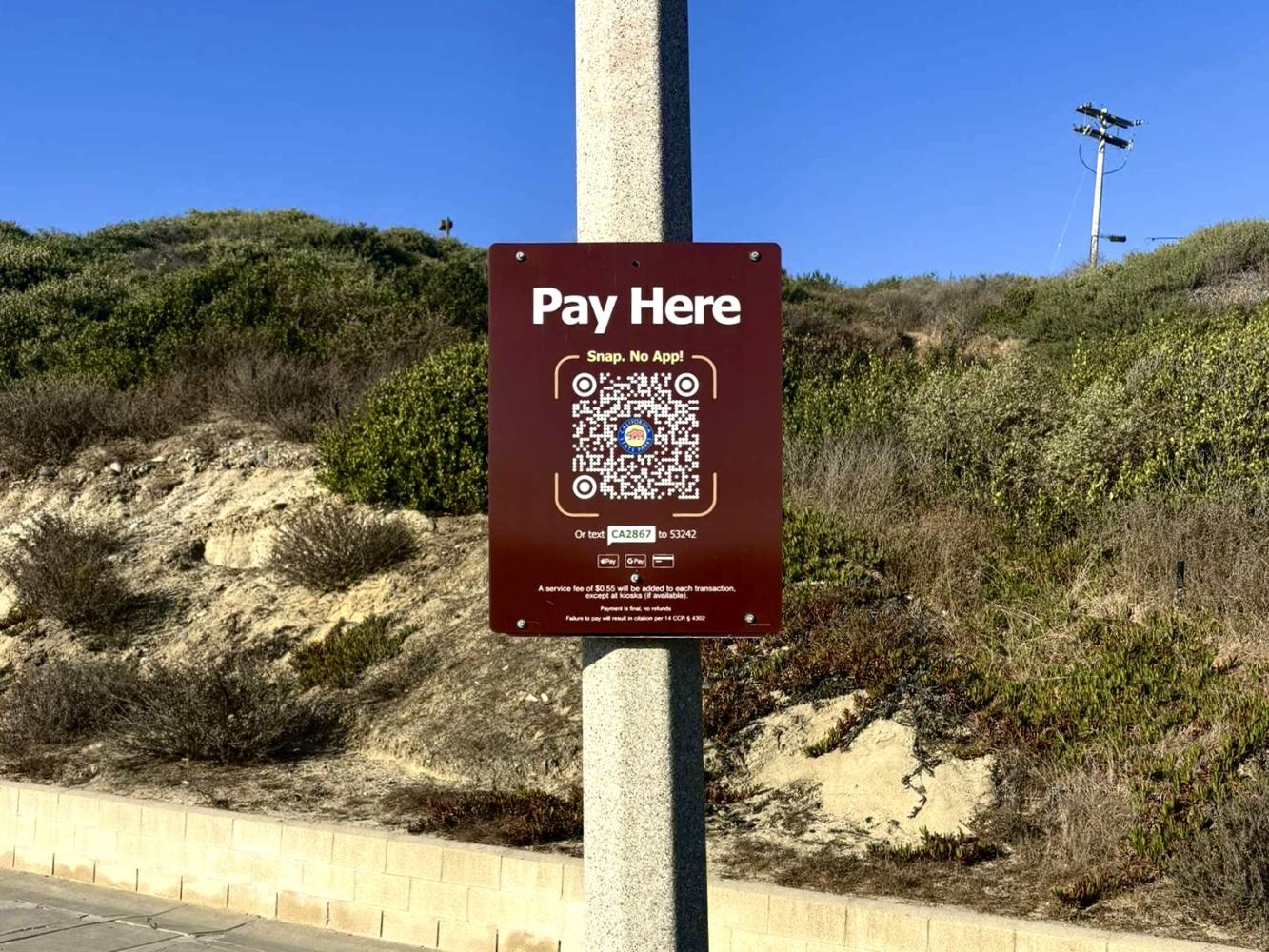
Carly Altman | Head Editor & Liam Dillbeck | Writer
September 6, 2024
A modernized form of malicious fraud has plagued the coast of California with the recent addition of a contactless payment option: QR codes. As the world continues to become increasingly digitized, many opt to use mobile payment options as opposed to physical cash or cards. Following this digital trend, many parking kiosks now offer QR codes as an alternative method for those who prefer to use electronic payments. However, this system has quickly been taken advantage of, with scammers placing fraudulent QR codes on meters across the country. With the prevalence of parking kiosks at beaches and street parking spots in California, this has become a significant issue within the state.
The scam is simple: Scammers affix counterfeit QR codes to parking meters, deceiving unsuspecting customers into offering up their data and financial information. This leaves personal data in the hands of scammers and often results in fraudulent charges or malware attacks. With the simplicity of both using and creating QR codes, it has become increasingly common to see forged codes posted on self-service payment devices.
“While I was in Redondo Beach this summer, I tried to use a QR code to pay for my parking,” explained senior Madelyn Mitchell. “It directed me to a misspelled website, which I thought was strange. I ended up moving to another parking spot and later saw a news report explaining that someone had placed fake QR codes on hundreds of meters. It was exactly what I had experienced.”

This scam has become a malevolent trend throughout Southern California with reports of counterfeit QR codes in several cities, including San Clemente. While some have noticed discrepancies that have allowed them to avoid these scams, it is often incredibly difficult to ascertain a real code from a deceitful one. The intricacies of QR codes are unreadable by the human eye, making it simple for scammers to exploit them.
“Looking at two QR codes next to each other, I think it would be nearly impossible to tell if one is real or fake,” explained senior Hannah Ellinger. “Scammers are taking advantage of that quality.”
As QR code scams continue to become more prevalent, it is crucial to be observant and consider ways to avoid falling victim to this simple form of fraud. Fortunately, taking the initiative to prevent information gathering can be just as simple. It is important to take a good look at and around the QR code for any obvious irregularities on the sticker. The spurious stickers will usually try to replicate the genuine parking sponsor, meaning grammatical errors and spelling mistakes, common among the scam codes, can expose their illegitimacy. If you find yourself already on the webpage, continue these safety checks. The page will also most likely be littered with subtle errors. Always take notice of the URL as well, as it can also contain informalities or an improper domain that reveals the scam.
The mistakes, in general, are not always easy to spot and the constant inspections might feel somewhat tedious. However, this additional exertion could be crucial in preventing another victim in this new wave of fraud. With no measures put in place to prevent these counterfeit QR codes, the responsibility falls upon us, as a united city, to shut down any profitability for these twisted crooks.

Leave a Reply